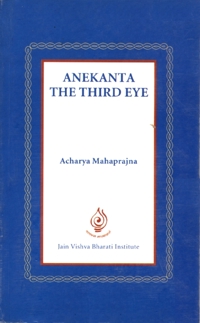
Sometimes things just go awry. Those who do not have a clear vision or understanding are able to misinterpret even the best principle. Till the person's neurological systems are not working smoothly he or she is not able to meditate. In Yoga it has been given great importance that the practitioner must first cleanse his neurological system. If the nervous system is pure then the intuition accruing thereof is pure. The more fine and refined the strings of intuition and karma are, the more powerful they become. There is an even more important thing about the glandular system. The purity of our glandular system determines the purity of our thoughts and reduces the passions and anger within us.
Now the nervous system gets the second place and the glandular system gets the first place. Science has made it well known that all our emotional stress is due to our endocrinal glands. If we look at the same thing from the angle of karma then we find that the nature of the essence of and ripeness of the karma will determine its manifestation in man. If through meditation one can change the secretions of the glandular system or the karmic fruition then man begins to change and his perspective begins to change. When perspective changes, then things become more meaningful.
The dance group was showing off its talent. One dancer got tired with too much of dancing and yet nobody had offered any money as appreciation. She told her husband, "The night is coming to a close. We have not got anything from the king or from the audience. The bowl for donations is still empty. Tell me some way to fill it to the brim. Now I am totally tired." Then the husband said, "Ma pramadi nishatyaye… the night is closing, the sun is about to rise. Do not stop dancing, continue."
The phrase, Ma pramadi nishatyaye worked wonders. Its meaning brought success. The prince dropped his necklace into the bowl. Even the princess gave her necklace. A monk dropped his valuable navrattna kambal [an expensive blanket from Nepal, studded with gems] into the bowl.
The king was amazed; he just did not understand what was happening.
He asked the prince, "How did you give such an expensive necklace to the dancer!"
The prince replied, "Sir, there is a big secret here. Let me tell you the truth. It has been coming to me again and again that now the king is old and if he dies I would be king. Sometimes it also struck me to kill my father, the king and become king myself. But just now the dancer said the night has gone past and but a few hours are left for dawn, why do you think as you do! That changed my entire perspective. I thought I have sinned. He is my teacher. He has cleared my thinking. Against this, the necklace is of meager value.
The princess said, "I have grown. I have entered my youth and still you have made no attempts to get me married. I thought let me run away with some man taking with me some wealth. But the words of the dancer opened my eyes. I heard him say, there is but little time left now. Most of it has gone past. I got perspective and I was saved. More valuable than the necklace is this state of mine."
The king asked the monk, "Why did you give your valuable blanket. The prince wished for the throne, the princess for marriage, what is your desire?" The monk replied, "I was getting tired of meditating. I thought I had attained nothing and so was planning to go back home. The desire for my family got awakened. I was biding time when I heard the phrase, Ma pramadi nishatyaye. And I thought fifty years of my life have gone past and why should I destroy everything in the few remaining years. Now it is dawning time. I felt greatly indebted to the dancer. He gave me a helping hand and stopped me from losing my restraint. Against this act of kindness, my blanket is of little value."
Kal kare So aaj kar, do today what you would tomorrow and ma pramadi nishtyaye, do not stop for it is about to dawn are both sutras that inspire. Many sayings pale when they encounter anekanta. Both are true: if our vision is clear then meditation gains in meaning and is successful in awakening our inner conscious. The one who does not have a clean vision, does not practice penance, does not meditate or live a life of restraint follows a philosophy of despair.
 Acharya Mahaprajna
Acharya Mahaprajna
